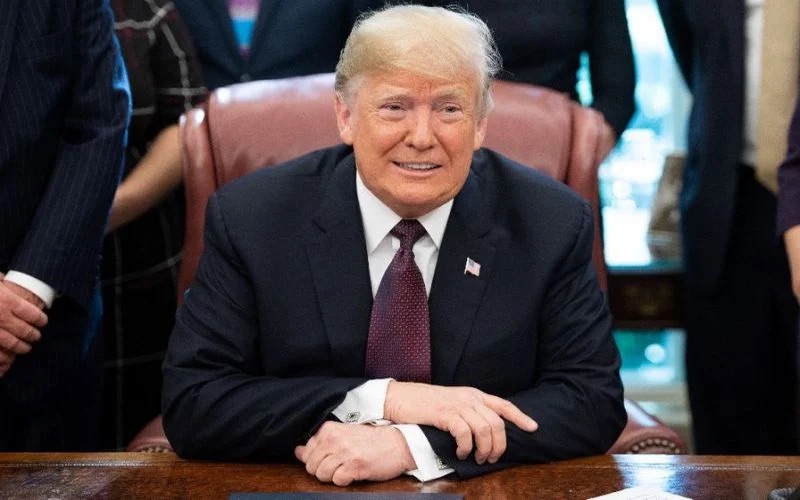
Well, President Donald Trump has released an audacious proposal. His latest proposal would restart an ambitious policy from his first administration to decrease drug prices. Trump intends to roll out this new initiative via executive order. It will set payments for new exception drugs according to the average of all other listed countries’ prices.
The “Most Favored Nation’s Policy” Focuses on Drug Pricing
The new plan, nicknamed the “Most Favored Nation’s Policy,” focuses entirely on drug pricing. It makes sure the United States won’t pay any more for drugs than the country that pays the least anywhere in the world. We intend to address the ever-increasing costs of pharmaceuticals through this approach. These prices have been an acute strain on American households and a central issue during Trump’s last presidential campaign.
The development is timely, given the administration’s ongoing focus on healthcare costs in the United States. The ex-president promised, “It’s going to be one of the most consequential Executive Orders that our Country has ever signed. Prescription Drug and Pharmaceutical prices will be CUT, starting in as little as 30 days, by 30% to 80%—for Americans, not subsidized foreigners. I WILL ENFORCE A MOST FAVORED NATION’S POLICY. That is, the maximum price the US government would pay is the price charged by the lowest price anywhere in the world.
Under this new policy, Medicare will pay the lowest negotiated price for 50 selected Part B drugs administered in doctors’ offices. This price would be set according to what peer countries are charging today. About $86 billion in savings was estimated under a comparable plan introduced back in 2020. This much-needed financial relief would have a tremendously positive impact on Medicare and the millions of beneficiaries it serves.
Challenges and Uncertainty Around Policy Implementation
Yet, the pharmaceutical industry will likely fight tooth and nail against Trump’s re-energized push. The industry argues that implementing such a policy could jeopardize hundreds of billions of dollars in investments within the United States. The Pharmaceutical Research and Manufacturers of America (PhRMA), the industry’s main trade group, expressed concerns about the implications of Trump’s proposal.
“Under this Foreign First Pricing scheme, American patients get a raw deal,” said Stephen Ubl, CEO of PhRMA. Allowing foreign prices to steer Medicare toward lower costs will save Medicare at least $200 billion. It does not guarantee that patients are receiving the benefit or improved access to those medicines.
The pharmaceutical industry managed to succeed in stopping an earlier iteration of this policy during Trump’s first term. In many ways, this surprising victory cast enormous doubt on the policy’s future viability. Analysts are throwing cold water on the ambitiousness of Trump’s plan to cut drug costs in half. Chris Meekins, an analyst with Raymond James, noted that Trump repeatedly promised the world during his first term to lower drug prices. He pointed out that what Trump did chipped away at those big promises.
Peer countries usually spend much less on medicines, because their governments set prices or negotiate prices with drug manufacturers. To accomplish this, Trump’s blueprint would align U.S. drug prices with those of other countries. He can do this by starting to use the discounts negotiated by these countries. This strategy can take the form of tariffs on pharmaceutical imports. That’s all along the lines of a bigger White House campaign to reconfigure drug pricing frameworks.
As Trump continues with this executive order, it is still uncertain on how healthcare providers and patients will respond. Supporters maintain that this policy will provide long-awaited relief to American consumers struggling under the burden of high prescription drug prices. To the critics, the prospect of destabilization in the market for pharmaceuticals would be catastrophic. They are deeply concerned that this might prevent or limit beneficial investments as well as access to important new medications.
What The Author Thinks
Trump’s “Most Favored Nation’s Policy” proposal could provide much-needed relief for Americans struggling with high prescription drug prices, but its success is far from guaranteed. While the policy aligns U.S. drug prices with lower costs in other countries, the pharmaceutical industry’s pushback, alongside concerns about market instability and long-term access to new treatments, complicates its potential effectiveness. If enacted, it could make a significant impact on Medicare and healthcare costs, but the risk of alienating key stakeholders in the drug industry remains a major obstacle to its full implementation.
Featured image credit: FMT
For more stories like it, click the +Follow button at the top of this page to follow us.
